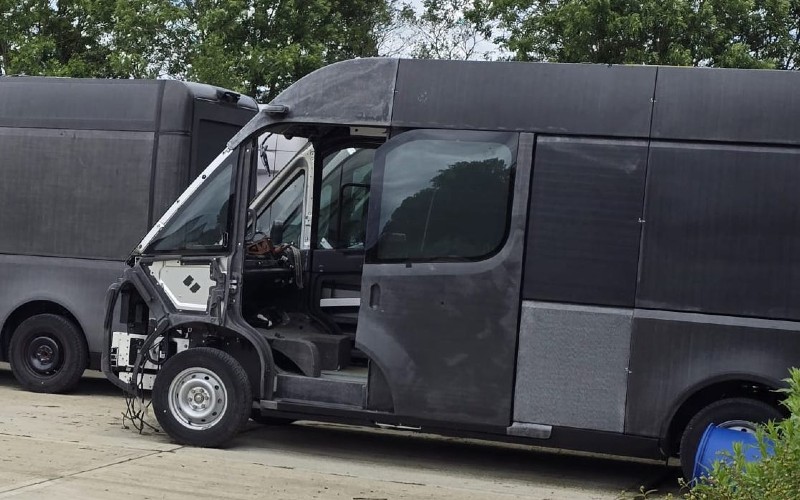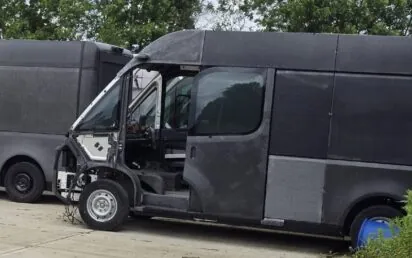Maybe it was nostalgia that convinced investor Peter Lever to take a look at the former UK headquarters of electric vehicle maker Arrival.
Once hailed as the future of UK automotive industry, Arrival claimed to be able to produce electric vans, buses and taxis more cheaply via ‘microfactories’ in multiple locations.
The world sat up to listen when US delivery giant UPS put an early order in for 10,000 vehicles, it launched on the US Nasdaq exchange and was (briefly) valued at £9 billion.
The company’s expensive-looking website (which still hasn’t been disabled four months after Arrival’s UK operations collapsed into administration) screamed: “We are reinventing both the design and production of electric vehicles for end-to-end sustainability.
“Only true innovations of both products and processes can deliver the radical impact we need to combat the worst effects of the climate crisis.”
It’s a far cry from the sorry sight that greeted former investor Lever when he decided to visit the company’s former Banbury headquarters next to the M40.
At the height of its success in October 2021, Arrival took 198,750 sq ft of space at the CM40 logistics park in Banbury.
A year later it was reported they’d taken another two units totalling 145,426 sq ft as part of its ongoing expansion on eye-watering 15-year leases.
Today a ‘to let’ board has been erected but it’s the sight of fading, partially-built vehicles seemingly abandoned on the car park that is the starkest reminder yet of Arrival’s fall from grace.
“They looked a bit sad,” admitted Lever. “It’s a lost opportunity.”
It’s also a reminder of the wider challenges facing the sector.
Last week British electric truck manufacturer Tevva Motors joined the growing ranks of companies in the space entering administration.
In 2023 UK battery startup Britishvolt collapsed into administration after missing a series of construction milestones.
Last October electric truck startup Volta Trucks went into administration in Sweden – although it was subsequently bought by one of its major creditors, Luxor Capital Group.
One industry expert told me: “Arrival is a victim of a seismic shift in investor and market sentiment for this type of embryonic manufacturing business.”
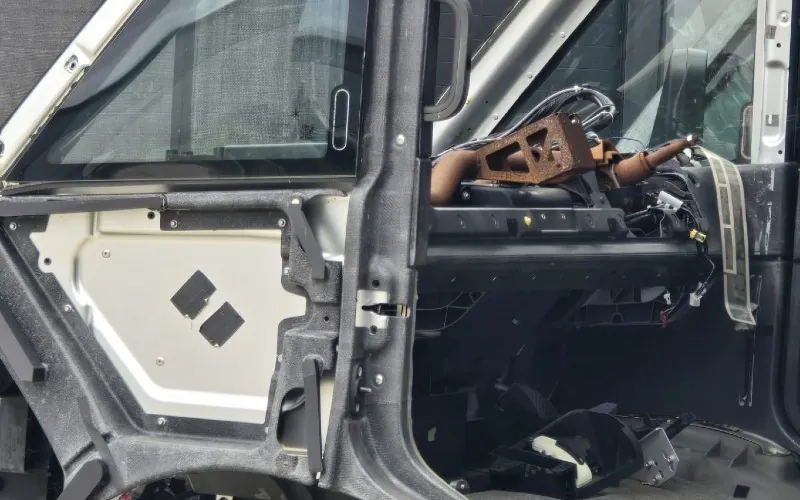
The former car park at Arrival’s former HQ looks likes a graveyard for abandoned vehicles
Former FT journalist Marcus Gibson, founder and owner of UK SME database Gibson Index, was more direct.
“The list of recent absurdities is long: Britishvolt, the great hope of the mad green lobby; Arrival; the fast delivery wonks led by Deliveroo; Tevva, the ludicrous electric ‘truck’ company,” he wrote on LinkedIn in response to my earlier investigation of Cazoo.
“The third wave of ‘green’ companies are also all now going bust at a satisfying rate, too. Any company with the word ‘climate’ in their title goes bust… quickest.”
Of course, Arrival’s launch in 2015 was met with optimism and talk of changing the world.
Arrival UK and its wholly owned subsidiary Arrival Automotive UK were set up in 2015 and 2019, respectively, by Russian billionaire Deni Sverdlov and are owned by Arrival SA, which is registered in Luxembourg.
The early signs were good as it received an order for 10,000 vehicles from the US delivery giant UPS with an option for a further 10,000 as Hyundai and institutional investors scrambled to back the company.
In 2020 Arrival finished top of LinkedIn’s prestigious fourth annual list of top startups.
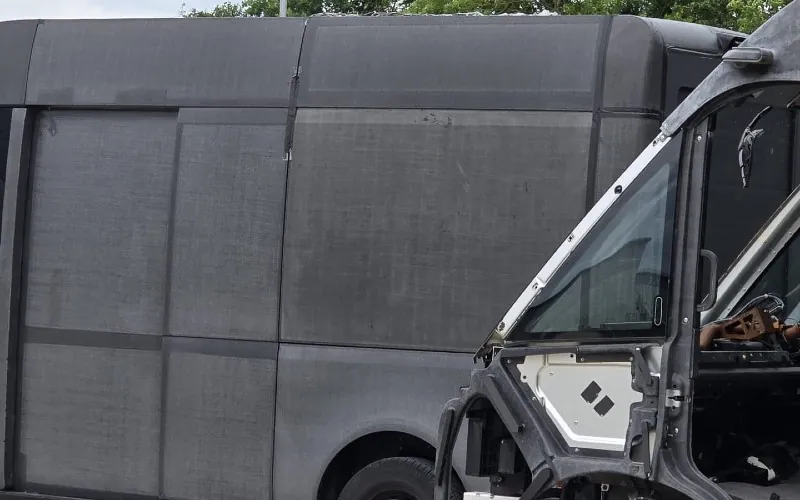
The sorry sight that greeted one investor when he recently visited the former car park at Arrival’s former UK HQ in Banbury
Peter Lever first became aware of Arrival after the company was featured on the BBC tech programme Click.
Having worked previously in the motor industry, he immediately recognised its potential.
“There was a lot of innovation and I thought it was amazing,” he said. “They described themselves as a technology company rather than a manufacturer.
“It wasn’t just vans they made. They were producing single-decker electric buses and cars for Uber.
“Arrival had seen a gap on the commercial side. Elon Musk had sewn up the B2C market with Tesla.
“I started researching the company. They listed on the Nasdaq in the US and I became a minimal investor.
“The idea was that rather than build a massive building like Tesla, they built microfactories.”
However things gradually turned sour. There was a fire at its Banbury facility – during a demonstration of one of its vans – in 2022 and several financial setbacks as it struggled to get its designs produced.
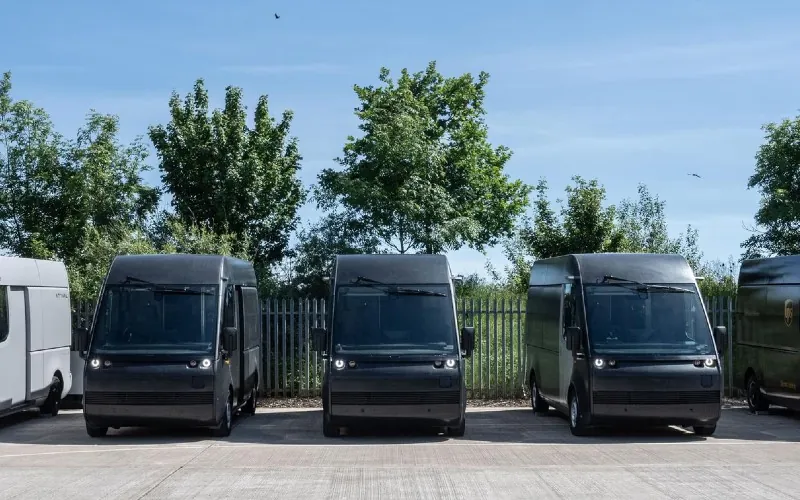
Happier times from 2021: Arrival vans all lined up in the car park
Lever said: “The writing was on the way for a long time. They basically took on too much. They wanted to change the way manufacturing was done.”
Last year it announced it would halve its 800-strong workforce and switch production to North Carolina in the United States, while in November it secured £40m in emergency funding as it sought a buyer.
Its shares were suspended from trading at the end of January 2024 and on February 5th the inevitable happened and Arrival’s UK operations went into administration.
Simon Edel, Alan Hudson and Sam Woodward of EY-Parthenon’s Turnaround and Restructuring Strategy team were appointed joint administrators of Arrival UK and Arrival Automotive UK.
“The group’s liquidity position has been impacted by a challenging market and macroeconomic conditions resulting in delays getting the group’s products to market,” they stated at the time.
“As such, the joint administrators are now exploring options for the sale of the business and assets of the companies.”
Only an optimist would believe it’s anything other than the end of road for Arrival – but Lever is more upbeat.
“I still think something will come out of the flames,” he said. Others might disagree.

